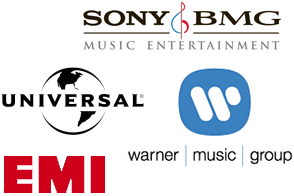Artist: Before you sign that Record Deal read these point.
 Last night, at the new artist showcase, you sang your heart out! So much so that Ms. Music Mogul invites you to her office the next day because she’s ready to make you a star! All you have to do is sign the record contract that she just put on the desk. (Ok, it really doesn’t happen like this these days, but just work with me, ok?!) You politely tell her that you need your entertainment lawyer to first review the record contract before you’ll sign anything! Kudos to you because that’s a smart decision!
Last night, at the new artist showcase, you sang your heart out! So much so that Ms. Music Mogul invites you to her office the next day because she’s ready to make you a star! All you have to do is sign the record contract that she just put on the desk. (Ok, it really doesn’t happen like this these days, but just work with me, ok?!) You politely tell her that you need your entertainment lawyer to first review the record contract before you’ll sign anything! Kudos to you because that’s a smart decision!
When you finally meet with your entertainment lawyer, here are some key points in the recording contract you’ll want to discuss:
1) Term: This refers to the length of time (or the number of albums you will have to record) you’ll be exclusively signed to the record label. “Exclusive” means that you can’t record for another record label without the record label’s permission. Your entertainment lawyer will seek to reduce the amount of time you’re exclusively signed to the record contract and/or add language that allows you to terminate the record contract if certain condition are not met. One such condition that can be negotiated into the record contract obligates the record label to commercially releasing in the US and Canada an album within 6-12 months after said album has been satisfactorily delivered otherwise you will have the right to terminate the record contract. This is called a “release guarantee.” Keep in mind that remaining signed to the recording contract and release multiple albums would be beneficial to your long-term career if your albums are successful because it’s a sign that the record label is doing its part by aggressively marketing and promoting you and your music. Also, your entertainment lawyer should be able to renegotiate the material terms of the recording contract based on the commercial success of your album.
2) Artist Advance: This is the upfront payment or “advance” made to you when you sign the record contract. First rule – get your entertainment lawyer to get as much of an advance for you as possible because it may end up being the only money you get from a record label especially if they never commercially release your album! Traditionally, advances were paid to an artist so that they could focus on recording their album without having to keep a job. However, these days, you may still have to keep that day job since advances are not as big as they once were. Keep in mind that advances are “recoupable” (not a “loan”) meaning that the record label will recoup the advance from record royalties payable to you on sales of your records.
3) Record Royalties: Reflected as a percentage of the “standard retail list price” (or the “published price to dealer or PPD”) of an album, this is the money a record label will pay you based on the sales of your records. The “all-in” royalty (which includes payment to a producer and other third-parties) for a new artist ranges from 12% – 16%. Obviously your entertainment lawyer will try to get you the highest rate possible especially if you’ve got a nice “buzz” in the music industry. However, you won’t receive a dime of record royalties until the record label has recouped all of its costs it expends in recording, marketing and promoting your album. So don’t get mad if your royalty accounting statement does not contain a royalty check unless you’re selling records like Adele! Lastly, beware of a clause in a record contract where you’re receiving 50% of the profits generated from sales of your single/album. It sounds fair, but be careful of language in the record contract where all the costs of recording, marketing and promotion of the album is recouped from your 50% share of the profits!
4) Co-Publishing: If you write or produce your own songs, this clause gives the record label a co-publishing ownership interest in those songs. The record label will exclusively administer and own 50% of the publisher’s share of the copyright (which means they keep 25% of the publishing income and you keep 75%) in perpetuity (i.e., forever). This language is hard to get deleted so your entertainment lawyer will seek to limit the record labels ownership interest to only those songs actually “recorded and commercially released” while you’re signed to the record contract. Any songs that you write for other recording artists will be 100% owned by you. Also, your entertainment lawyer can also try to get an additional co-publishing advance paid to you by the record label in exchange for their co-ownership interest in your song.
5) Merchandising: When you sign a record contract, you also give the record label the exclusive right to use your name, image and likeness for promotional and commercial purposes. In this case, the merchandise clause in the record contract gives the record label the exclusive right to manufacture and sell posters, t-shirts, baseball caps, etc. incorporating you name, image and likeness. In some cases, your entertainment lawyer might be able to get that clause deleted, but most of the time the record label will insist it remain in the record contract and offer you a 50/50 profit split of merchandising income. However, your entertainment attorney should try to negotiate a 60/40 or 70/30 profit split of merchandising income in your favor.
6) Ancillary Rights/360º: In the past few years, and in response to declining CD sales due primarily to online piracy, record contracts now include ancillary rights clauses where the record label gets a percentage of traditionally “non-record label” artist income earned from touring, endorsements, TV/film and other sources of entertainment related opportunities. Also called a 360 deal or ancillary rights clause, and almost impossible to delete from a record contract these days, your entertainment lawyer will try to reduce the ancillary percentage, which usually ranges from 10% – 25% of your gross income, to as low as possible. In the case where you have an artist manager and a talent agent to whom you have to pay a commission, your entertainment lawyer can try to get the record label to agree to first deduct those commissions (“off-the-top”) from your gross ancillary income and then deduct its ancillary percentage. In other words, the record label may agree to be paid its ancillary percentage based on the “net” income earned by you after you’ve paid your artist manager (usually 15% – 20%) and talent agent (usually 10%). However, keep in mind that if the record label is already participating in your publishing and merchandising income due to a co-publishing and merchandise clause, your entertainment lawyer will need to make sure that the record label doesn’t take an additional percentage of the publishing and merchandising income pursuant to this ancillary rights clause. That’s considered “double-dipping!”
Again, this is a brief overview of points to be considered and discussed with your entertainment lawyer BEFORE you sign a record contract!
Keep an eye out!
Peace,
Bob Celestin, Entertainment Attorney at law
Source: Robert A Celestin, Attorney at Law
Link: http://www.raclawfirm.com/record-deal-artists-perspective/


























great info. These are things all artist need to know
Comments are closed.